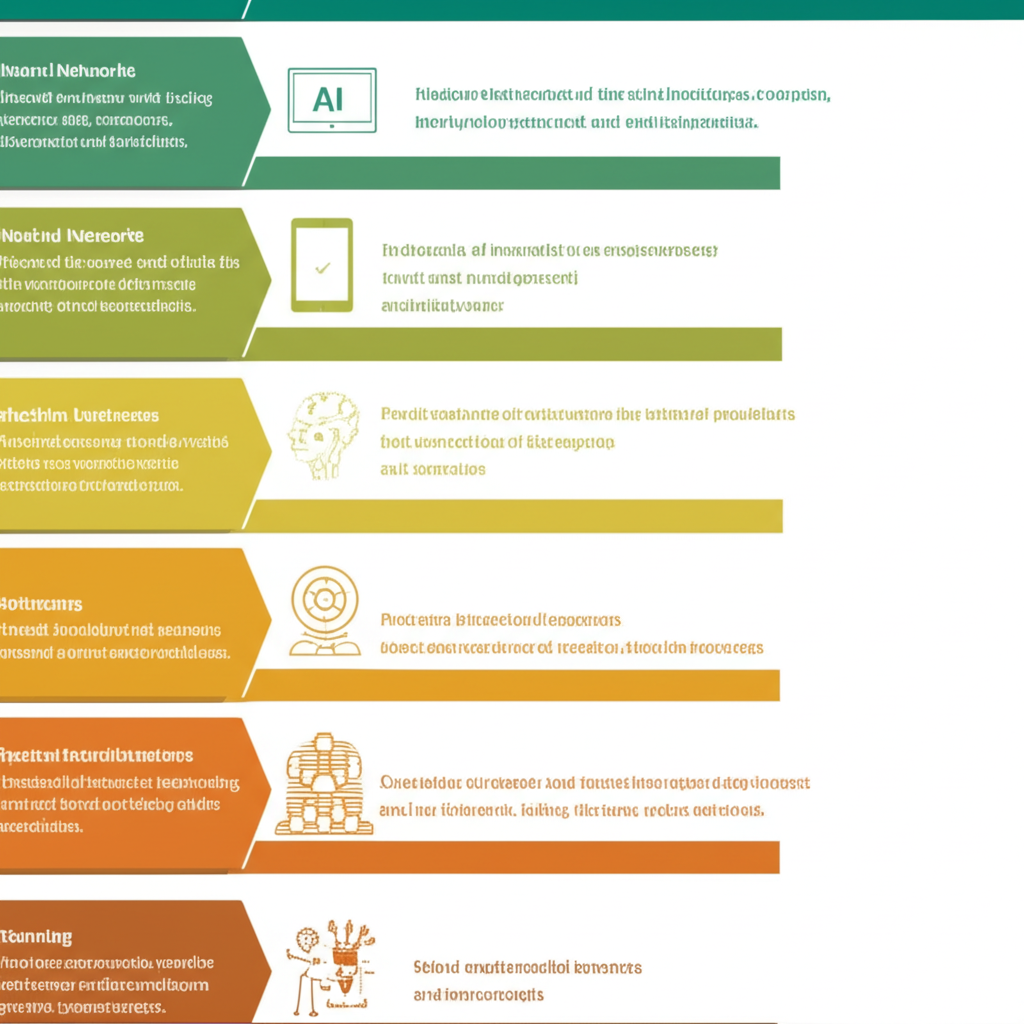Artificial Intelligence (AI) is no longer a futuristic concept; it’s shaping our world at an unprecedented pace. From powering search engines and recommendation systems to revolutionizing healthcare and transportation, AI’s footprint is expanding rapidly. Staying informed about these advancements is key to navigating the future job market and technological landscape. Learn more about the impact of AI on various industries.
The demand for professionals with AI skills is projected to surge in 2025 and beyond. Companies across every sector are seeking talent that can develop, deploy, and manage AI technologies. This creates immense opportunities for career growth and innovation. Acquiring AI proficiency is becoming less of an option and more of a necessity for many roles.
This article serves as your comprehensive guide to finding the best AI courses tailored to your current skill level. Whether you’re just starting out or looking to specialize, there are learning paths available to help you achieve your goals in 2025.
AI is a vast field encompassing many exciting areas. These include Machine Learning (ML), Deep Learning (DL), Natural Language Processing (NLP), Computer Vision, and Reinforcement Learning, among others. Understanding these different branches can help you choose the right learning path.

Understanding Your Starting Point: Beginner, Intermediate, or Expert?
Before diving into course options, it’s helpful to assess where you stand. A Beginner is typically someone with little to no prior experience in AI concepts, though they might have some programming familiarity. An Intermediate learner understands core AI ideas and has some practical coding experience but wants to deepen their knowledge of algorithms and applications. An Expert or Advanced learner possesses strong theoretical and practical AI skills, often specializing in specific areas or conducting research.
To assess yourself, consider your background. Do you understand basic programming concepts (like Python syntax)? Are you comfortable with foundational math (algebra, basic calculus, statistics)? Have you built any models or completed AI projects before? Answering these questions honestly will guide you.
Most beginner courses assume little to no AI knowledge but might require basic programming. Intermediate courses often require solid programming skills and an understanding of fundamental ML concepts. Advanced courses typically demand strong programming, math, and prior AI experience.
Top AI Courses for Beginners (Getting Started with AI Fundamentals)
Beginner courses are perfect for those new to Artificial Intelligence, especially if they have a programming background, often in Python. The focus here is on building a strong foundation, understanding basic terminology, exploring ethical considerations, and getting a feel for simple AI applications.
These introductory courses often cover the fundamental question: “What is AI?” They introduce different types of AI and essential data science tools like Pandas and NumPy for data handling. You’ll typically encounter simple supervised and unsupervised learning concepts, such as linear regression or k-means clustering.
Many beginner-friendly courses are available on platforms offering interactive coding environments, such as Codecademy or DataCamp. Others provide comprehensive introductions through specialized programs on platforms like Coursera or edX. You might also find valuable introductory courses provided directly by tech companies like Google AI or via platforms related to Microsoft Azure AI. Look for courses that emphasize core concepts and ethical considerations early on.
Here are example areas and skills typically covered:
- Defining AI, Machine Learning, Deep Learning
- Data types and basic data cleaning
- Introduction to Python for Data Science
- Simple predictive modeling (e.g., linear regression)
- Ethical implications of AI
Top AI Courses for Intermediate Learners (Building Core AI Skills)
Intermediate courses are designed for individuals who have moved beyond the basics. You likely understand fundamental AI concepts, possess solid programming abilities, and are ready to explore algorithms in more depth and apply them practically.
The focus at this level shifts to understanding core machine learning algorithms like Support Vector Machines (SVMs), Decision Trees, and Ensemble methods. You’ll also typically get an introduction to Neural Networks and foundational Deep Learning concepts. Practical skills in model building, evaluation, and working with data are emphasized.
Intermediate learners often explore basic areas like Natural Language Processing (NLP) fundamentals or Computer Vision basics. Courses might introduce Reinforcement Learning concepts. You’ll likely use libraries such as Scikit-learn for traditional ML and get introduced to frameworks like TensorFlow or PyTorch for neural networks. These courses often include more coding exercises and project work compared to beginner ones.
Example skills and topics at this level include:
- Model selection and hyperparameter tuning
- Feature engineering techniques
- Implementing common ML algorithms
- Building and evaluating classification and regression models
- Basic neural network architectures

Top AI Courses for Advanced & Expert Learners (Mastering Specialized AI)
Advanced courses cater to experienced AI practitioners, researchers, or professionals looking to specialize in cutting-edge areas. The content is highly technical and often requires a strong background in mathematics, programming, and foundational AI/ML.
The focus here is on mastering advanced Deep Learning architectures, such as Convolutional Neural Networks (CNNs), Recurrent Neural Networks (RNNs), Transformers, and Generative Adversarial Networks (GANs). You might delve deep into specialized topics like advanced NLP, complex Computer Vision problems, or in-depth Reinforcement Learning theory and application.
Advanced learning often covers areas like MLOps (Machine Learning Operations), Explainable AI (XAI), or the application of AI in specific complex fields like healthcare or finance. These courses might involve implementing complex models using advanced features of frameworks like TensorFlow or PyTorch, optimizing models for performance and scale, and understanding the latest research papers. They are often part of specialized certifications or even master’s degree programs.
Example areas and skills for experts:
- Designing and training complex neural networks
- Model deployment, monitoring, and scaling (MLOps)
- Implementing state-of-the-art AI techniques
- Contributing to research or complex industry projects
- Advanced topics like Generative AI or AI Ethics research
Choosing the Right AI Course for You in 2025
Selecting the perfect AI course involves more than just matching the content level to your experience. Many factors influence which program will best fit your needs and help you achieve your learning goals in 2025.
Consider your preferred Learning Style. Do you learn best through video lectures, interactive coding exercises, hands-on projects, or dense theoretical material? Think about the Time Commitment required – are you looking for a quick introduction, a part-time program, or a full-time immersive experience? Self-paced vs. scheduled courses also matters.
The Cost is a significant factor, ranging from free resources to expensive university programs or certifications. Research the Platform Reputation; established platforms like Coursera, edX, Udacity, DataCamp, and Udemy have different strengths. Also, look at the instructors’ credentials – are they respected academics, researchers, or industry professionals?
Key Considerations for Course Selection:
- Learning Style: Lectures, interactive, project-based?
- Time Commitment: Hours per week, duration?
- Cost: Free, subscription, one-time fee?
- Platform: Coursera, edX, Udacity, DataCamp, Udemy, etc.?
- Instructors: Expertise and background?
- Certification: Is a credential important?
- Community: Access to forums or support?
- Hands-on Projects: Portfolio building opportunities?
- Course Updates: Is content relevant for 2025 trends?
Free vs. Paid AI Courses: What’s the Difference?
The landscape of AI education includes a wide spectrum of options, from completely free resources to premium paid programs. Understanding the typical differences can help you decide where to invest your time and money.
Free AI resources often include individual lectures, basic introductory tutorials, or short courses covering specific fundamental concepts. They are excellent for getting a taste of AI, learning basic syntax, or exploring a specific subfield without commitment. However, they may lack depth, structure, personalized support, or formal credentials.
Paid courses, on the other hand, typically offer more comprehensive programs. They often include structured curricula designed by experts, graded assignments, dedicated support from teaching assistants or instructors, project-based learning culminating in portfolio pieces, and formal certifications upon completion. Investing in a paid course can be beneficial when you seek a deep understanding, a recognized credential for career advancement, or a structured learning path with support.
| Feature | Free Courses | Paid Courses |
|---|---|---|
| Content Depth | Often introductory or specific | Comprehensive, in-depth |
| Structure | Less structured, modular | Structured curriculum, progressive |
| Support | Community forums (variable) | TAs, instructors, dedicated support |
| Credentials | Limited or no formal certificate | Often provide certificates/specializations |
| Projects | Few or basic exercises | Significant, portfolio-building projects |
| Cost | Free | Subscription or one-time fee |
Keeping Up with AI: The Importance of Continuous Learning
Embarking on an AI course in 2025 is a fantastic step, but it’s essential to recognize that it’s part of a longer journey. Artificial Intelligence is one of the fastest-evolving fields globally. What is state-of-the-art today might be foundational knowledge tomorrow.
Staying updated is crucial for long-term success in AI. After completing a course, continue your education by reading relevant research papers, following leading AI blogs and researchers, participating in online coding competitions (like Kaggle), and considering further specialized courses.
View the courses you choose as building blocks. Each course provides a necessary layer of knowledge and skills. By committing to continuous learning, you ensure your expertise remains relevant and you can adapt to the exciting advancements happening in AI in real-time.
Conclusion
In summary, acquiring AI skills is becoming increasingly valuable in today’s tech-driven world, with demand projected to rise significantly in 2025. Thankfully, a wealth of learning resources exists for every level, from absolute beginners to seasoned experts.
Choosing the right course depends heavily on your current knowledge, learning style, time availability, and career aspirations. Factors like platform reputation, instructor expertise, and opportunities for hands-on projects are also key considerations.
Investing your time and effort in learning AI in 2025 is an investment in your future. The opportunities presented by mastering these technologies are vast and continue to grow. Pick your starting point, stay curious, and embrace the journey of continuous learning in this dynamic field.
FAQ
Q: How much math do I need for AI courses?
A: For beginners, basic algebra and statistics are usually sufficient. Intermediate and advanced courses require stronger foundations in linear algebra, calculus, probability, and statistics to understand algorithms deeply.
Q: Which programming language is most important for AI?
A: Python is the most widely used programming language in AI due to its extensive libraries (TensorFlow, PyTorch, Scikit-learn, Pandas, NumPy). While other languages are used, Python is the primary language for most courses and applications.
Q: Can I get a job in AI with just online courses?
A: Yes, many individuals successfully transition into AI roles after completing online courses, especially those with projects to build a portfolio. Credentials from reputable platforms and demonstrated project work are highly valued by employers.
Q: How long does it take to learn AI?
A: Learning AI is a continuous process. To gain foundational knowledge and be able to build simple models might take several months of dedicated study. Becoming proficient or an expert can take years of learning and practice.
Q: Are free AI courses worth it?
A: Absolutely. Free courses and resources are excellent for getting started, learning basic concepts, exploring interests, and deciding if you want to invest further time or money in paid programs. They are a valuable starting point.

